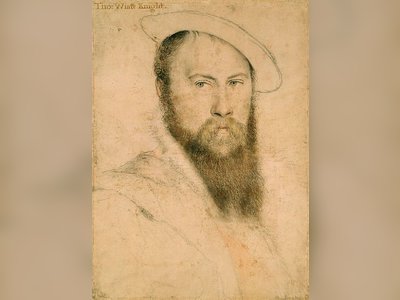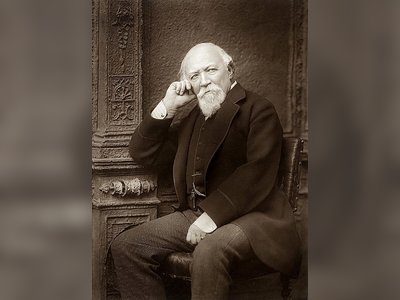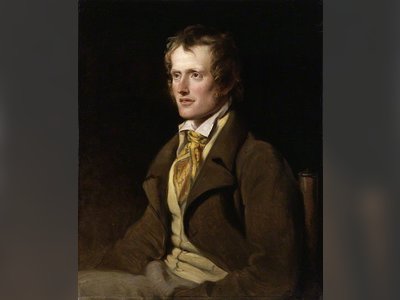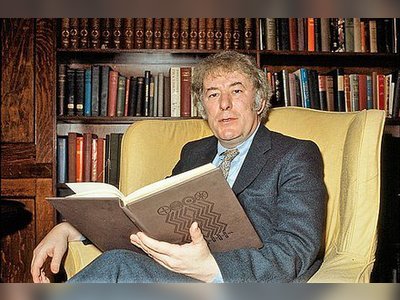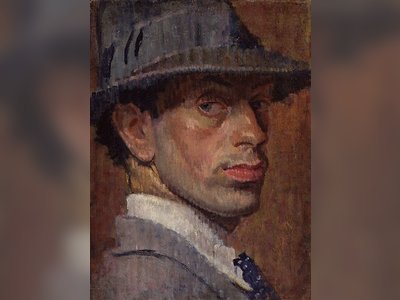British Heritage
Remember, Cherish, Learn.
beta
Louis MacNeice - The People's Poet, 1940s
Louis MacNeice (1907–1963) was a prolific British poet from Northern Ireland whose work was widely appreciated by the public during his lifetime, due to his relaxed but emotionally aware style. In the period before and after WWII and throughout the years of conflict he regularly produced anthologies which touched the public nerve. A very few of his poems are: Meeting Point, Snow, London Rain, Prayer Before Birth, I Am That I Am, The Brandy Glass, The British Museum Reading Room, Sunday Morning, The Sunlight on the Garden, Apple Blossom. Never as overtly or simplistically political as some of his contemporaries, he expressed a humane opposition to totalitarianism as well as an acute awareness of his Belfast roots.
Contribution to British Heritage
Louis MacNeice, a prolific British poet from Northern Ireland, made significant contributions to British heritage through his influential and emotionally resonant poetry. Born in Belfast in 1907, MacNeice's work gained widespread appreciation among the public during his lifetime, especially during the period before and after World War II, where he regularly produced anthologies that deeply touched the public's nerve. His poetry had a unique style that combined a relaxed tone with emotional depth, making it accessible and relatable to a wide audience.
Unlike some of his contemporaries who were overtly political, MacNeice expressed a humane opposition to totalitarianism and demonstrated a keen awareness of his Belfast roots. His poems conveyed a sense of human compassion, and his acute understanding of the human condition, which further endeared him to the readers. MacNeice's work not only reflected the cultural and social milieu of his time but also contributed to shaping the literary landscape of British heritage.
Legacy
Louis MacNeice's legacy as a poet remains enduring and influential. His body of work continues to be appreciated and studied by scholars, poets, and readers alike. One of the lasting impacts of MacNeice's poetry is his ability to bridge the gap between the esoteric and the accessible, making poetry more approachable to a broader audience. By using a relaxed style, he touched upon universal themes that resonated with people from all walks of life.
MacNeice's association with the Auden Group, which included prominent poets like W. H. Auden, Stephen Spender, and Cecil Day-Lewis, further solidified his place in literary history. His friendships and collaborations within this group allowed for a fruitful exchange of ideas and influenced the development of modern poetry.
Additionally, his work played a vital role in portraying the complexities of human emotions and experiences during a tumultuous period in British history, especially during the war years. MacNeice's poems, such as "Meeting Point," "Snow," and "Prayer Before Birth," captured the anxieties, hopes, and fears of a nation at war, providing a lasting testament to the human spirit during challenging times.
Contribution to British Heritage
Louis MacNeice's contribution to British heritage can be seen in the way his poetry reflects the cultural, social, and political landscape of his time. His works shed light on the experiences of people during the pre and post-WWII era, capturing the essence of British society and its response to global conflicts. His poems, such as "London Rain" and "The British Museum Reading Room," serve as snapshots of the city's atmosphere and intellectual pursuits.
Moreover, MacNeice's deep connection to his Irish roots is evident in his poetic expressions. His upbringing in Belfast and the loss of his mother at a young age influenced his perspective on identity, culture, and family. This awareness of his Irish heritage added a distinct voice to his poetry, contributing to the rich tapestry of British literary heritage.
Success and General Info
Louis MacNeice achieved considerable success during his lifetime as a poet and playwright. His poetry collections, such as "Poems" (1935), "The Earth Compels" (1938), and "Autumn Journal" (1939), received critical acclaim and widespread readership. He was also a member of the prestigious Auden Group, which brought him into the literary spotlight and allowed him to collaborate with some of the most prominent poets of his time.
MacNeice's success extended beyond poetry, as he also wrote plays and worked extensively with the BBC, producing radio programs that aimed to foster cultural connections and support during World War II. His radio play "Christopher Columbus," with music by Benjamin Britten and starring Laurence Olivier, stands as a testament to his versatility and creativity as a writer.
Despite his success, MacNeice's personal life was marked by challenges, including marital troubles and struggles with alcoholism. However, these hardships also found expression in his poetry, adding depth and authenticity to his work.
In conclusion, Louis MacNeice's poetry and contributions to British heritage remain a treasured part of literary history. His ability to connect with readers through emotionally charged verses, his humane opposition to totalitarianism, and his profound awareness of his Belfast roots cement his place as "The People's Poet" of the 1940s. His legacy lives on through the influence he had on subsequent poets and the lasting impact of his work on British literature and culture.
- Louis MacNeiceen.wikipedia.org




